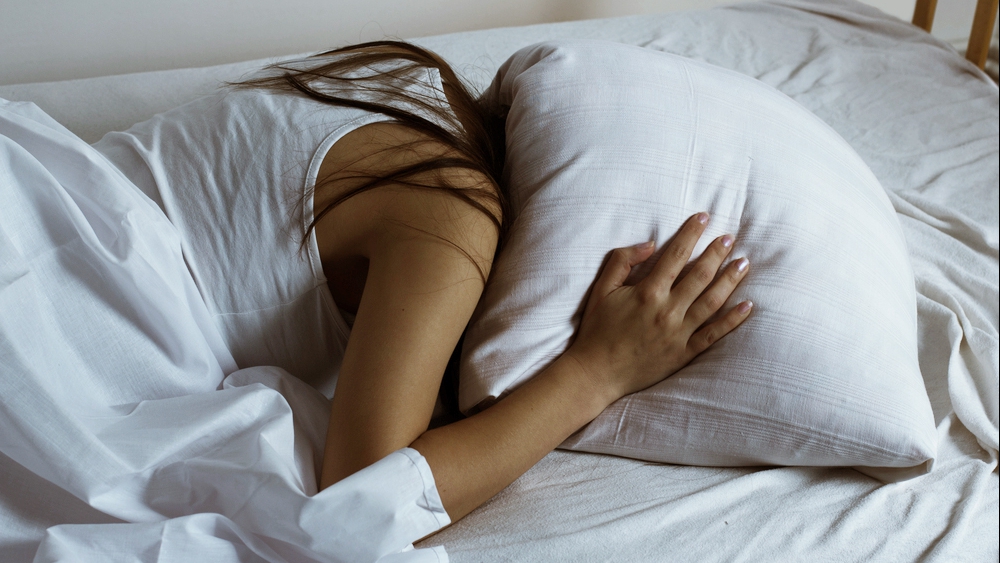
The National Sleep Foundation has named March 10 – 16, Sleep Awareness Week. Below are News Network posts that will help you learn more about the importance of sleep for good health.
Journalists: Broadcast-quality video pkgs are in the downloads at the end of the post. Please 'Courtesy: Mayo Clinic News Network.'
Mayo Clinic Minute: Springing forward can affect your health (video)
When daylight saving time kicks in, you spring forward and gain an hour of daylight. But you also lose an hour of sleep. Dr. Brynn Dredla, a Mayo Clinic sleep neurologist, explains why that seemingly small change can significantly affect your body.
Mayo Clinic Minute: Lack of sleep worsens health issues (video)
Is society sleep-deprived? Adults need approximately seven hours of sleep a night, and many people aren't getting it, according to the Centers for Disease Control and Prevention. Dr. Virend Somers, a Mayo Clinic cardiologist and sleep specialist, says not getting enough sleep can negatively affect your health.
Mayo Clinic Minute: What are the stages of sleep? (video)
Sleep is important for good health. Experts say eight hours of shut-eye is a good idea for most adults. And whether you're a sound sleeper or someone who has trouble sleeping, your body goes through sleep stages.
Mayo Clinic Minute: How much sleep do kids need? (video)
As children across the country head back into the classroom, now is the time to start easing them back into a normal sleep schedule. How much sleep kids need to maximize their learning potential depends partially on their age. But the key to getting them on a regular schedule may have more to do with what time they wake up than what time they go to sleep.
Mayo Clinic Minute: Daytime sleepiness linked to Alzheimer’s (video)
Do you catch yourself yawning during the day and yearning for an afternoon nap? You could be at more risk for Alzheimer's disease. A recent study published in JAMA Neurology found a potential link between excessive daytime sleepiness and the memory loss disease. Researchers took a look at imaging scans of the brains of several hundred patients from the Mayo Clinic Study of Aging.
Mayo Clinic Minute: Signs of a sleep disorder (video)
According to the Centers for Disease Control and Prevention(CDC), one-third of U.S. adults don't get enough sleep. Busy lives may be the reason some people don't log the hours they need, but for others, sleep disorders are the culprit. Research shows proper sleep is essential for good health. Dr. Virend Somers, a Mayo Clinic cardiologist, studies sleep because sleep disorders, such as obstructive sleep apnea, are associated with issues that affect the heart.
Mayo Clinic Q and A: Insomnia — what to do when you can’t sleep
DEAR MAYO CLINIC: What is the best way to eliminate insomnia? For almost a year, I’ve had trouble getting much sleep. I've tried over-the-counter medications, but they aren't very effective.
ANSWER: Although sleep medications may be useful when you have occasional trouble sleeping, they aren't meant for long-term use. A better approach is to change your behaviors to cultivate quality sleep. An evaluation with your health care provider to check for underlying issues that could be negatively affecting your sleep also could be valuable.
Housecall: 6 tips for better sleep
Sleep plays a crucial role in your health, energy level and ability to function at your best. Most adults require seven to eight hours of sleep each night to feel well-rested and energized. From setting a sleep schedule to paying attention to what you eat and drink, try these six tips for a good night's rest.
Housecall: Do you need a sleep study?
Do visions of sugarplums elude you as you try to get a good night's rest? Your health care provider may recommend polysomnography, also called a sleep study, which can help diagnose and treat chronic insomnia, sleep apnea and more. Polysomnography records your brain waves, heart rate and breathing; the oxygen level in your blood; and your eye and leg movements during sleep. Find out if a sleep study might be right for you.
Consumer Health: Can’t sleep?
Sleeping pills may help when stress, travel or other disruptions keep you awake. Prescription sleeping pills may help you fall asleep easier, stay asleep longer or both. Learn more about the risks and benefits of different types of sleep medications, underlying medical conditions that may be causing your sleep disruption, and which approach to treating your insomnia is right for you.
Science Saturday: Getting to the Heart of Sleep
Physician researcher, Dr. Virend Somers, directs the Mayo Clinic cardiovascular sleep research facilities. His team studies the role of the autonomic nervous system in cardiovascular regulation, especially during sleep.







